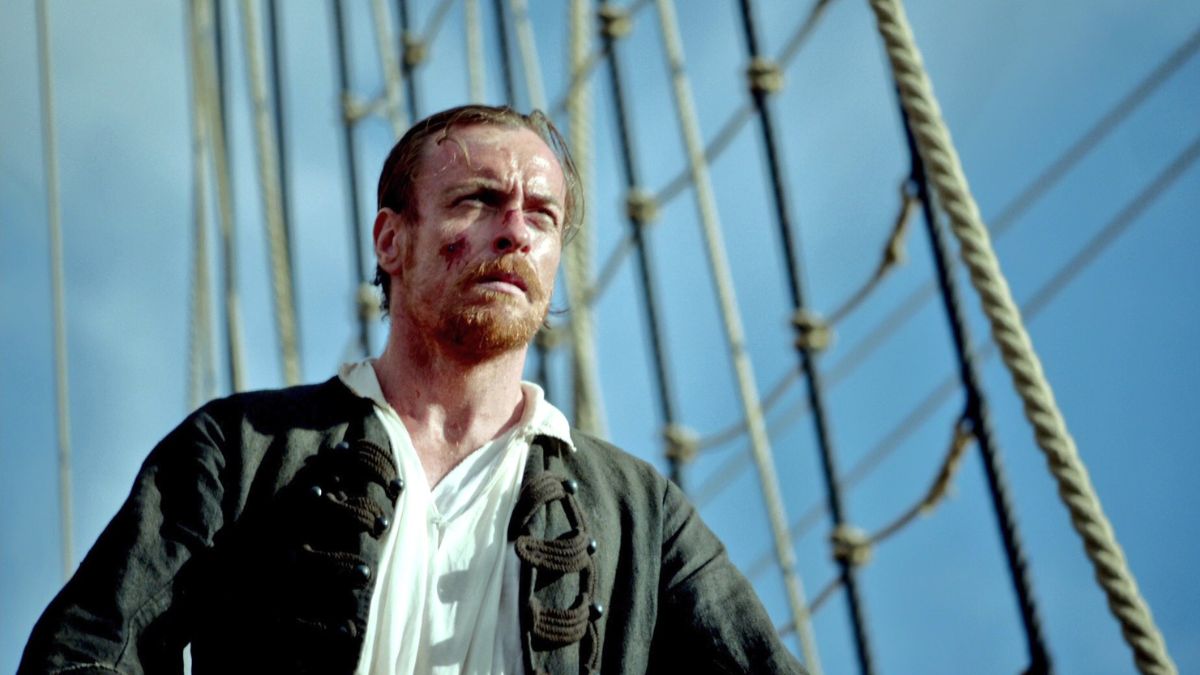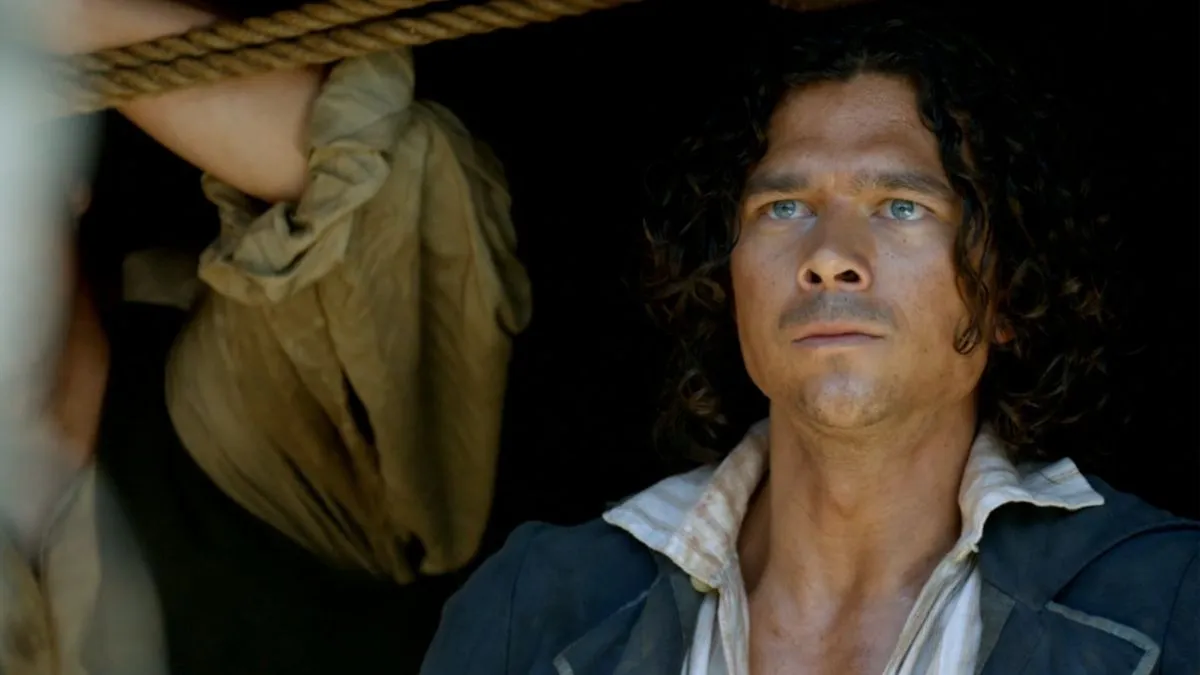The Show That Completely Rewrote the Chemistry of My Brain Is Finally on Netflix
And the bad takes are already starting to roll in.

A whopping seven years after its series finale, the single best pirate show ever created is finally available to stream on Netflix. I am, of course, talking about Black Sails—Starz’s prequel of Robert Louis Stevenson’s iconic 19th-century novel Treasure Island.
Created by showrunners Jonathan E. Steinberg and Robert Levine, the four seasons of Black Sails follow pirate Captain James Flint—played by Toby Stephens—and his crew as they fight for their survival and that of their base on New Province island during the Golden Age of Piracy. While the protagonists of the show—Flint and John Silver, played by Luke Arnold—are fictional, reimagined from the ones Stevenson wrote, there’s a whole cast of real pirates making their appearance, from Anne Bonny and Jack Rackham to Charles Vane, Israel Hands and Blackbeard.
When Netflix announced on its socials that it had added Black Sails, I caught sight of some posts and tweets asking whether or not this series was any good and worth someone’s time. And I couldn’t help but laugh because in my fandom life, there’s clearly a before and after Black Sails. This show really was and still is everything to me and it remains one of the best pieces of media I’ve ever had the pleasure of watching. So trust me when I say that you really don’t want to miss it.
So, let’s hit the easy marks first: Black Sails is incredible from all technical points of view. Exceptional acting, of course, but also killer cinematography and scripts, as well as one of the best opening themes and overall soundtracks ever put to television courtesy of Bear McCreary. Nothing feels impossible when the Black Sails opening theme is playing.
And then there’s the story itself. Black Sails is nothing short of a masterclass in the metanarrative power of storytelling—both because it’s an incredibly coherent story to experience from the outside but also because several characters inside it use narratives to bend people to their own will and navigate the complicated world in which they live.
*** Ahead are non-specific spoilers that still touch on some of the major plot twists in the show, so be aware and proceed at your own risk.***
More or less everyone inside the world of Black Sails is very aware that there’s a role that they’re playing or that they are supposed to be playing—they are pirates, after all, forever in opposition with the might of the British Empire who has declared them enemies of mankind. And yet they don’t believe themselves to be monsters—and most of them aren’t—and so they either adapt to their role for their own advantage or rage against it.
And all of that happens within the greater setting of the Golden Age of Piracy, with all these theses about storytelling and narration mixing with the exploration of the brutal violence that only a colonial empire can create—and the racism and elimination of everything “other” that comes with it. The show is filled with heavy themes—so check for trigger warnings ahead—but these themes are handled so masterfully that it never feels exploitative. Everything has a point and a reason to be there, and that’s one of the marks of a great story.

But of course, almost no piece of media comes without a hefty amount of discourse. The Black Sails fandom has had its time to run through all the controversies and the meta posts and the debates, sure, but new people watching the show means a new influx of opinions—which are always welcome, even though some of them have really bristled the entire fanbase of people that have been gallivanting on the Walrus ever since 2014.
That’s because there’s another major theme that courses throughout Black Sails, and that’s queerness. Not only are several characters queer and shown to be having queer relationships on screen, but queerness as a whole is the major driving force behind the plot—everything started and everything continues because of it. And sure, it’s not “nice,” polished queerness. It’s violent and full of grief and rage, it wants to burn down a world that hates it and others it, because while the characters are queer the world remains realistic and so queer relationships aren’t exactly welcomed.
So in the few days Black Sails has been available to stream there have been several takes that have labeled it as “too queer-coded,” in the sense that the queer content is buried too far and not as easy to access as in other shows. And I have personally rarely seen a take that so badly misinterprets the show it wants to comment on.
Because sure, the queerness of Black Sails—which isn’t really “coded,” since this isn’t subtext but it’s very much text—isn’t a happy one. There are moments of happiness and intimacy and tenderness, don’t get me wrong, but it’s not light-hearted and fun.
Characters recognize their queerness and also recognize that their life is sometimes made more difficult by it—and that’s why they try to fight against a world where they are constantly marginalized. Black Sails isn’t queer in the sense that it centers a queer romance—it’s queer in the sense that its queer characters make their decisions based on the fact that they’re queer in a world where it’s not accepted. After all, what’s queerer than a group of social outcasts who work their hardest to stand against an empire that would like nothing more than to eradicate them?
(featured image: Starz)
Have a tip we should know? [email protected]